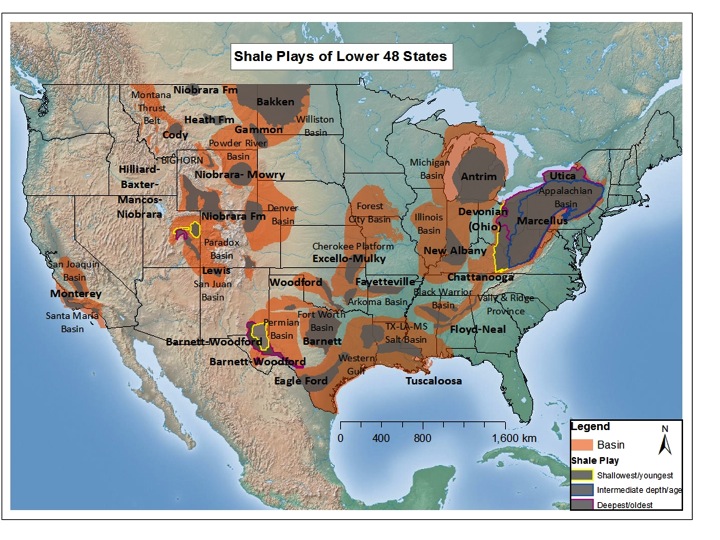Duke, Ohio State, Stanford, Dartmouth, Rochester scientists conclude that failed pipe and cement allowed gas to leak
The first peer-reviewed comprehensive studies testing drinking water quality and any links to nearby shale gas production have found that the well completion process known as hydraulic fracturing was not the cause of any migration of gas into contaminated wells. The study results pointed to the need for much stronger quality control measures for standard well construction procedures and the materials used in the drilling process.
Teams of highly qualified scientists from five of the nation’s most prestigious research universities found that leaking well shafts, not fracing, was the cause of fugitive methane contamination in water wells above the Marcellus and Barnett shale plays, two of North America’s most heavily fraced areas for shale gas.
“These results appear to rule out the possibility that methane has migrated up into drinking water aquifers because of horizontal drilling or hydraulic fracturing, as some people feared,” said Avner Vengosh, professor of geochemistry and water quality at Duke.

The scientists evaluated more than 400 natural gas wells in northeastern Pennsylvania and southern New York, 130 wells in central Arkansas, 100 wells in North Carolina, and 50 wells in West Virginia. The overall result published in the Proceedings of the National Academy of Science found that the contamination of well water around drill sites occurred because of failed casing and cementing.
“We found eight clusters of wells — seven in Pennsylvania and one in Texas — with contamination, including increased levels of natural gas from the Marcellus shale in Pennsylvania and from shallower, intermediate layers in both states,” said Thomas H. Darrah, assistant professor of earth science at Ohio State, who led the study while he was a research scientist at Duke.
“Our data clearly show that the contamination in these clusters stems from well-integrity problems such as poor casing and cementing,” Darrah said.
Duke University issued a press release announcing the results of the groundbreaking study.
To read the scientific publications coming out of studies on hydraulic fracturing and water quality, please click here.
[sam_ad id=”32″ codes=”true”]
Important disclosures: The information provided herein is believed to be reliable; however, EnerCom, Inc. makes no representation or warranty as to its completeness or accuracy. EnerCom’s conclusions are based upon information gathered from sources deemed to be reliable. This note is not intended as an offer or solicitation for the purchase or sale of any security or financial instrument of any company mentioned in this note. This note was prepared for general circulation and does not provide investment recommendations specific to individual investors. All readers of the note must make their own investment decisions based upon their specific investment objectives and financial situation utilizing their own financial advisors as they deem necessary. Investors should consider a company’s entire financial and operational structure in making any investment decisions. Past performance of any company discussed in this note should not be taken as an indication or guarantee of future results. EnerCom is a multi-disciplined management consulting services firm that regularly intends to seek business, or currently may be undertaking business, with companies covered on Oil & Gas 360®, and thereby seeks to receive compensation from these companies for its services. In addition, EnerCom, or its principals or employees, may have an economic interest in any of these companies. As a result, readers of EnerCom’s Oil & Gas 360® should be aware that the firm may have a conflict of interest that could affect the objectivity of this note. The company or companies covered in this note did not review the note prior to publication. EnerCom, or its principals or employees, may have an economic interest in any of the companies covered in this report or on Oil & Gas 360®. As a result, readers of EnerCom’s reports or Oil & Gas 360® should be aware that the firm may have a conflict of interest that could affect the objectivity of this report.







